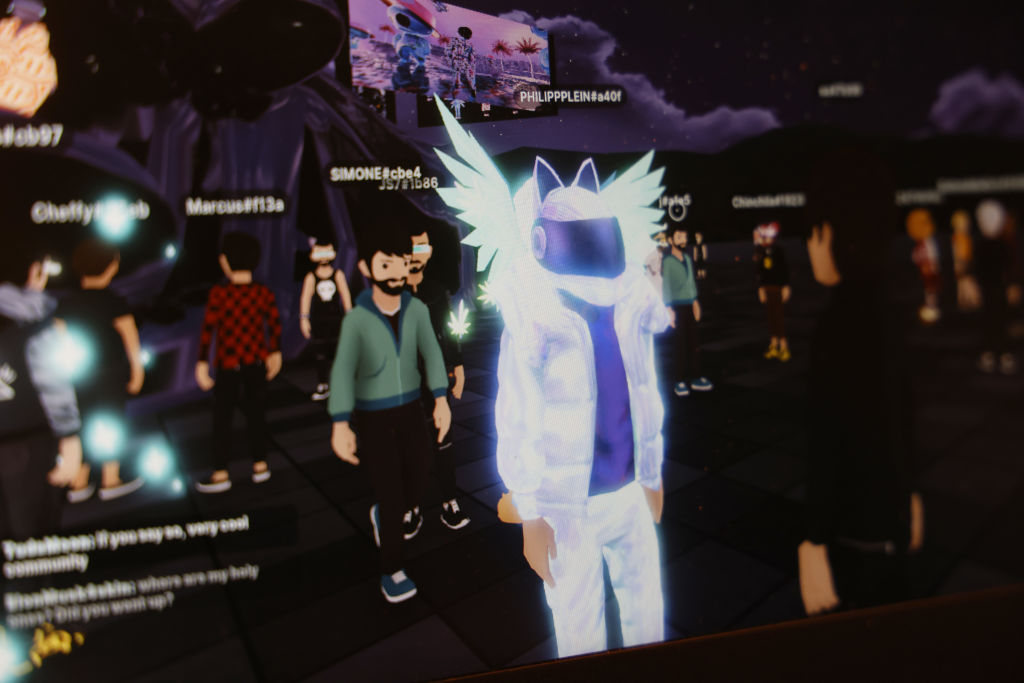After a much-discussed debut in 2022, Decentraland’s Metaverse Fashion Week returns between the 28th and 31st March 2023 to showcase the next generation of fashion in a Web 3.0 digital landscape. While the notion of a virtual fashion week holds great novelty, the second edition of Decentraland’s event is set to uncover the long-term sustainability of digital fashion.
For the 2023 edition of Metaverse Fashion Week, we’re set to see leading brands like Vogue Singapore, Dolce & Gabbana, Tommy Hilfiger, DKNY, Adidas, DUNDAS, and Ben Bridge among many other household names.
The week will also bring plenty of community interaction, with cross-metaverse wearable design competitions and a new emphasis on encouraging more widespread participation.
“This year, we are incredibly honored to continue the legacy of Metaverse Fashion Week. We are seeing the return of many luxury fashion houses and the emergence and elevation of digitally native fashion,” said Dr. Giovanna Graziosi Casimiro, Head of Metaverse Fashion Week.
“We are excited to see the world’s greatest fashion minds engaging in digital fashion and exploring what it can mean for their brands, and for their communities.”
Building into the Next Frontier of Fashion
Although the metaverse is still in its infancy, fashion brands have been among the fastest to take advantage of this new digital frontier.
There have already been a large range of brands that have released digital clothing collections ranging from high fashion to sports brands, with more looking into focusing their attention towards building into this brand new market to explore.
In the world of sports, brands like Nike, Adidas, and Mizuno have been quick to release NFT clothing items that users can unlock through the use of blockchain tokens. This has long been an aspiration for Nike, which acquired NFT sneaker firm RTFKT in 2021-at the time, one of the company’s biggest collections drew in $3.1 million. 
The appeal of metaverse fashion stems from the vast potential of customizable clothing for avatars to digitally wear the styles of their favorite brands and offer the rest of the metaverse a virtual social proof for their products.
Although VR fashion still needs to find its feet within a Web 3.0 ecosystem that’s still liable to change direction as new technologies emerge, Decentraland’s Metaverse Fashion Week appears to be focused on showing that digital trends can be just as pervasive as their ‘IRL’ counterparts.
Infiltrating Traditional Fashion
Fashion and the metaverse have formed a symbiotic relationship in recent years. At the 2023 New York Fashion week, we saw fashion designer Vivienne Tam run a metaverse show that saw guests enter a virtual world to walk down the red carpet, speak with special guests, and watch the show in virtual reality.
Working in partnership with Swan Sit, who was previously head of marketing at Nike and Revlon, Tam set up a high-quality show that closely mimicked the real-world fashion shows going on in New York that week-all with far greater levels of accessibility for viewers.
“I had been toying with the idea of a mirrored metaverse fashion show for a year, and when I met Vivienne, I knew I’d found the perfect partner,” said Sit in a recent interview. “I wanted to integrate both worlds seamlessly and equally, so we had to replicate every detail – from room layouts and the New York City skyline to even paparazzi photos and lighting. My hope for the future is that you are an equal, wherever and however you choose to show up.”
We’ve also seen technologies that are set to take center stage in fashion as Web 3.0 continues to grow, like artificial intelligence, and ChatGPT.
“Through tools like AI and machine learning, brands will increasingly be able to understand their customers’ preferences and create new operational changes to increase efficiencies and productivities,” said Maruschka Loubser, director of global partnerships at Microsoft.
Today, Microsoft works closely with many leading fashion designers around the world, including Emily Bode, to help bring more technological insights into their production process.
Bringing Virtual Fashion to Mainstream Audiences
Despite leading fashion houses all moving quickly to get in on the metaverse action, there are still many barriers to entry that can hinder the space’s development into the mainstream.
“You have this big bubble of Web3-native crypto users, but it’s a bubble, sometimes an echo chamber, and I’m encouraging the community to corral all the Web2 influencers, creators and consumers,” said Megan Kaspar, founder of digital fashion house Red DAO. “That’s where the adoption is gonna occur, and it can only occur when those people know how to use a wallet.”
Kasper voiced her fears that metaverse fashion exists within an echo chamber, and that increasing wallet adoptions among target groups that can help to define fashion and culture trends will see the space grow exponentially.
This would require instances like Nike’s acquisition of RTFKT more commonplace and can pave the way for fresh NFT marketplaces and digital fashion houses to emerge.
Although the relationship between fashion and Web 3.0 is still in its early stages, it seems that there’s a bright future ahead for democratizing high fashion and making it more accessible to wider audiences within virtual reality worlds like the metaverse.
The post Metaverse Fashion Week 2023 Shows how the Latest Trends are Going Digital appeared first on Datafloq.

